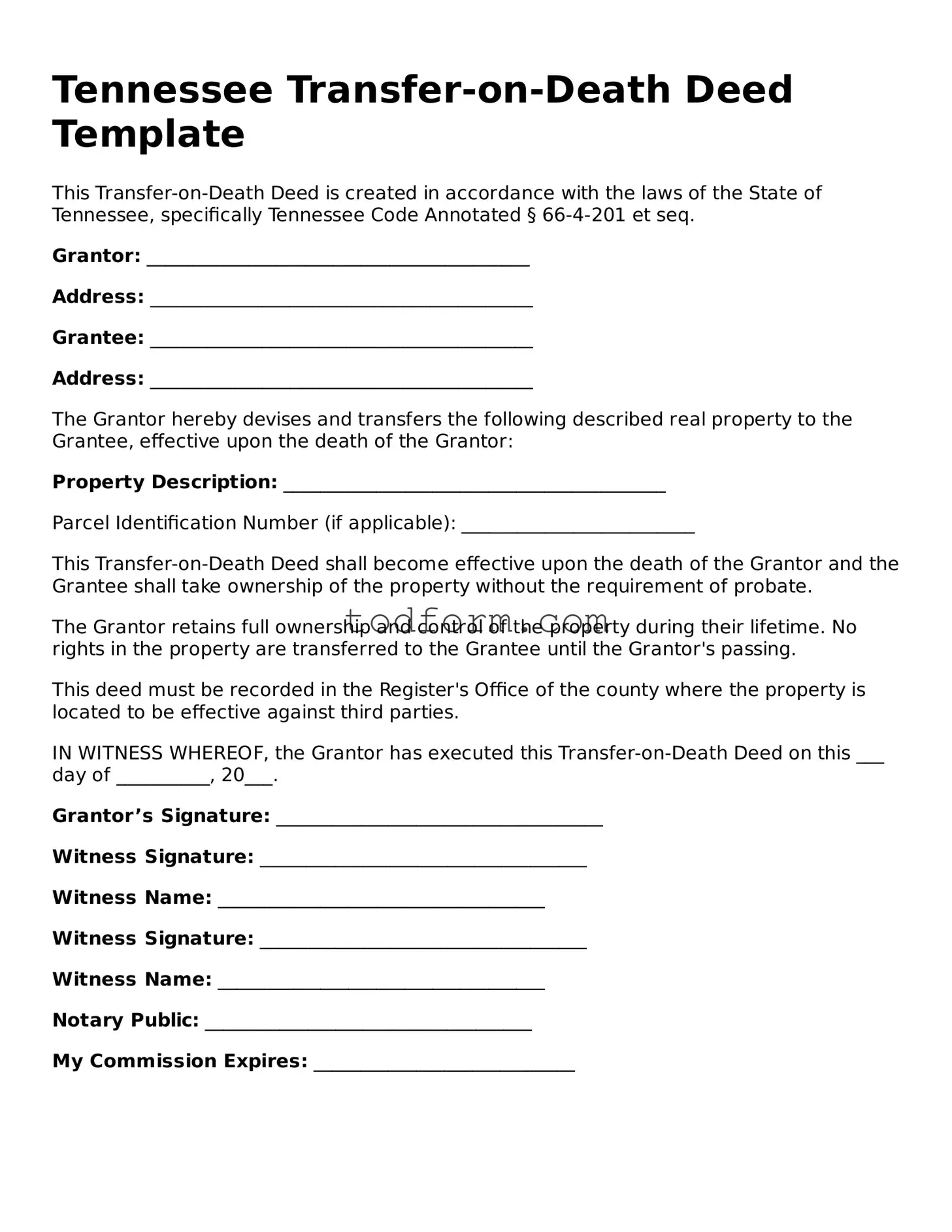Tennessee Transfer-on-Death Deed Template
This Transfer-on-Death Deed is created in accordance with the laws of the State of Tennessee, specifically Tennessee Code Annotated § 66-4-201 et seq.
Grantor: _________________________________________
Address: _________________________________________
Grantee: _________________________________________
Address: _________________________________________
The Grantor hereby devises and transfers the following described real property to the Grantee, effective upon the death of the Grantor:
Property Description: _________________________________________
Parcel Identification Number (if applicable): _________________________
This Transfer-on-Death Deed shall become effective upon the death of the Grantor and the Grantee shall take ownership of the property without the requirement of probate.
The Grantor retains full ownership and control of the property during their lifetime. No rights in the property are transferred to the Grantee until the Grantor's passing.
This deed must be recorded in the Register's Office of the county where the property is located to be effective against third parties.
IN WITNESS WHEREOF, the Grantor has executed this Transfer-on-Death Deed on this ___ day of __________, 20___.
Grantor’s Signature: ___________________________________
Witness Signature: ___________________________________
Witness Name: ___________________________________
Witness Signature: ___________________________________
Witness Name: ___________________________________
Notary Public: ___________________________________
My Commission Expires: ____________________________
